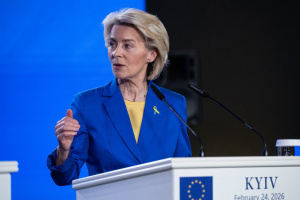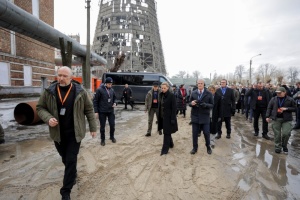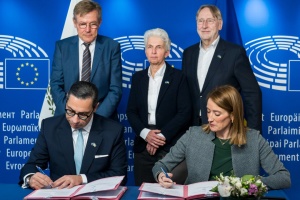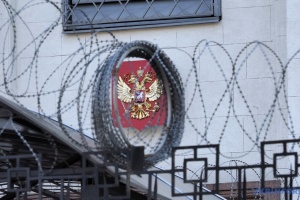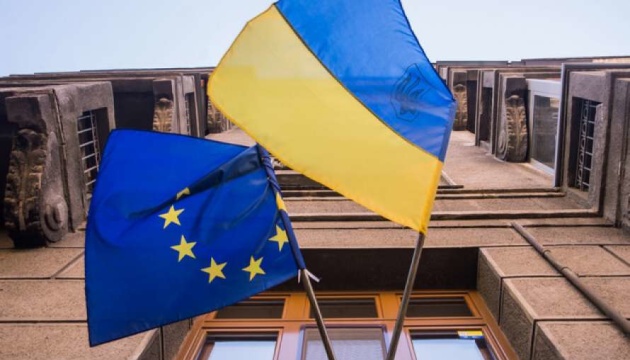
Industrial visa-free regime with EU: benefits and challenges for Ukraine
According to Prime Minister Denys Shmyhal, this year's key tasks for Ukraine's integration into the single European market include the continuation of transport and economic cooperation, as well as the early obtainment of an industrial visa-free regime with the EU. And while the preservation of the first two instruments of cooperation with the European Union depends to a greater extent on the political will of the European community (and at the level of European institutions, despite the resistance of some neighboring states, it exists), the ball is, as they say, in Ukraine's court as far as industrial visa-free travel is concerned. And the fact that the completion and formalization of this long-standing process has been repeatedly postponed is mostly our fault. This is due not only to the war, but also to slow internal reforms and adaptation of the domestic legal framework and standardization system to European requirements.
Let's recall what Ukraine and its partners have already done on this path, what remains to be done, and what difficulties will have to be overcome.
BENEFITS FOR UKRAINIAN BUSINESS: FASTER, CHEAPER AND WITHOUT INTERMEDIARIES
Approval of the so-called industrial visa-free regime will give an additional impetus to Ukraine's economic development and will help to involve our business in European value chains and further economic integration of the Ukrainian economy into the European market. The vast majority of Ukrainian politicians and experts seem to agree with this. But the degree of our readiness for this step is assessed differently. The likely timing of the signing of the relevant agreement and the risks that will have to be taken into account are also considered different (as with any international agreement, it is a matter of taking into account the interests of each party through consensus, which may be a challenge for the partner).

"Industrial" visa-free regime is the unofficial name for the Agreements on Conformity Assessment and Acceptance of Industrial Products (ACAA). Such agreements were concluded by the EU with the states that were candidates for membership in the European Community and the Mediterranean countries. This allowed the products covered by the agreements to be freely marketed in the EU internal market without additional bureaucratic procedures and intermediaries - residents of European countries.
The ACAA agreement will become part of Ukraine's economic European integration in the field of technical regulation.
"The essence of the agreement is mutual recognition of product certification. Currently, our products certified according to Ukrainian requirements must be re-certified there when exported to the European Union. This is time-consuming, expensive, and a non-tariff barrier to trade for Ukrainian products in the EU market. In other words, it is a limiting factor for exports. Instead, the signing of the agreement will ensure that EU certification bodies recognize certificates issued in Ukraine in accordance with European requirements. This will facilitate the export of Ukrainian goods. Similarly, Ukrainian certification bodies will recognize certificates issued in the EU. This will eliminate the need for European producers to re-certify their goods in Ukraine," Dmytro Kysylevsky, Deputy Chairman of the Verkhovna Rada Committee on Economic Development, explains in a commentary to Ukrinform.
"For us, the Agreement will provide for the recognition that the Ukrainian system of technical regulation and conformity assessment is equivalent to the European system. "That is, as a result of its signing, trade in goods between the EU and Ukraine in the sectors covered by the agreement will be conducted on the same terms as in trade between EU member states. The signing of the "industrial visa-free regime" will allow industrial producers to obtain the necessary certificates in Ukraine instead of looking for an official representative in the EU. Given that obtaining them takes time, money and effort, our companies will be able to save all this and direct it to their own development rather than to the important bureaucracy," Musa Magomedov, chairman of the Subcommittee on Industrial Policy of the Economic Committee of the Parliament, said in a comment to Ukrinform.
According to his estimates, the signing of the ACAA Agreement will reduce Ukraine's export costs for the supply of such products by 4.9% and import costs by 2.3%.
Industrial visa-free travel within the EU covers 27 product groups. However, for Ukraine, it is planned to introduce it only in three priority sectors at the first stage: machinery, low-voltage equipment, and electromagnetic compatibility. Then the list of product groups will be gradually expanded.
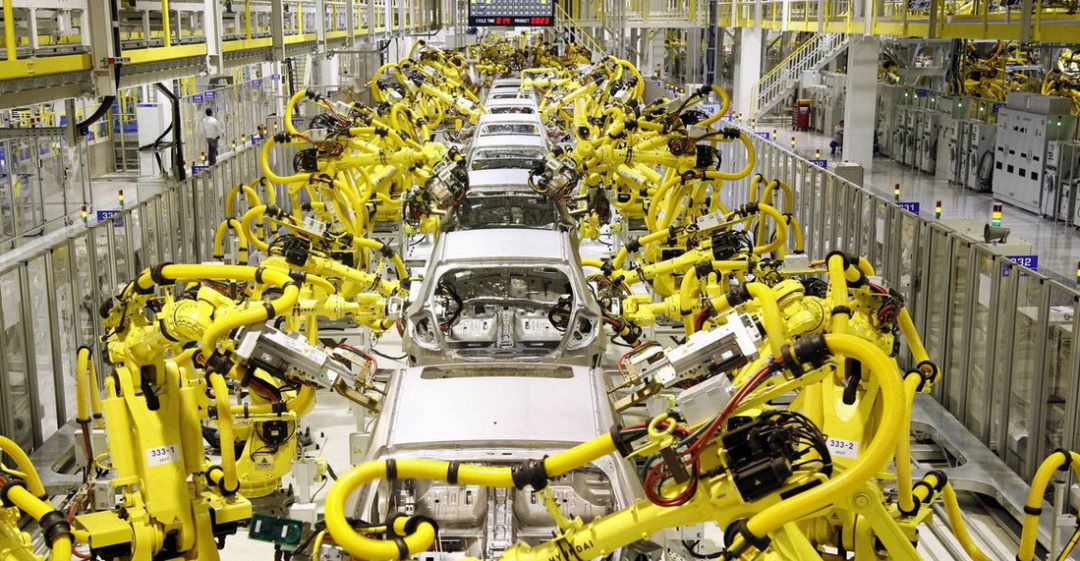
But already at the first stage, we will be talking about a number of undeniable benefits for Ukraine and Ukrainian business. Magomedov names the following advantages, in particular:
1. Exports and imports of goods that require safety assessment by conformity assessment bodies will become cheaper, and the certification procedure will be shorter and require less resources and effort.
2. Saving costs, time and effort for certification will lead to a revival of trade with the EU. Domestic companies' export revenues will increase, and thus so will the state budget.
3. Industrial visa-free regime will make the European market more accessible to new or small Ukrainian companies that previously could not get their goods certified in Europe due to the high cost of conformity assessment and the high cost of intermediary services.
4. The image component of our goods will improve, and thus the confidence of potential importers will increase. Ukrainian products will be recognized as meeting high EU standards. This will help us open new markets for export.
5. Ukrainian business will be able to integrate more actively into European production chains. Thus, according to Magomedov, our entire economy will be able to better integrate into the European market.
"As we prepare to overcome the challenges of the war and to build and restore the economy in the post-war period, we must consolidate our efforts to increase exports for the country's future economic growth. New opportunities are opened up by Ukraine's accession to the EU. As part of the export direction, we should use such opportunities and tools as promotion of Ukrainian goods and services abroad, development of export competencies of Ukrainian business, research of foreign markets, organization of participation of Ukrainian exporters in international events," said Deputy Minister of Economy Vitaliy Kindrativ during the International Forum "Industrial Visa Waiver (ASAA) in the System of Economic Recovery and Development of Ukraine".
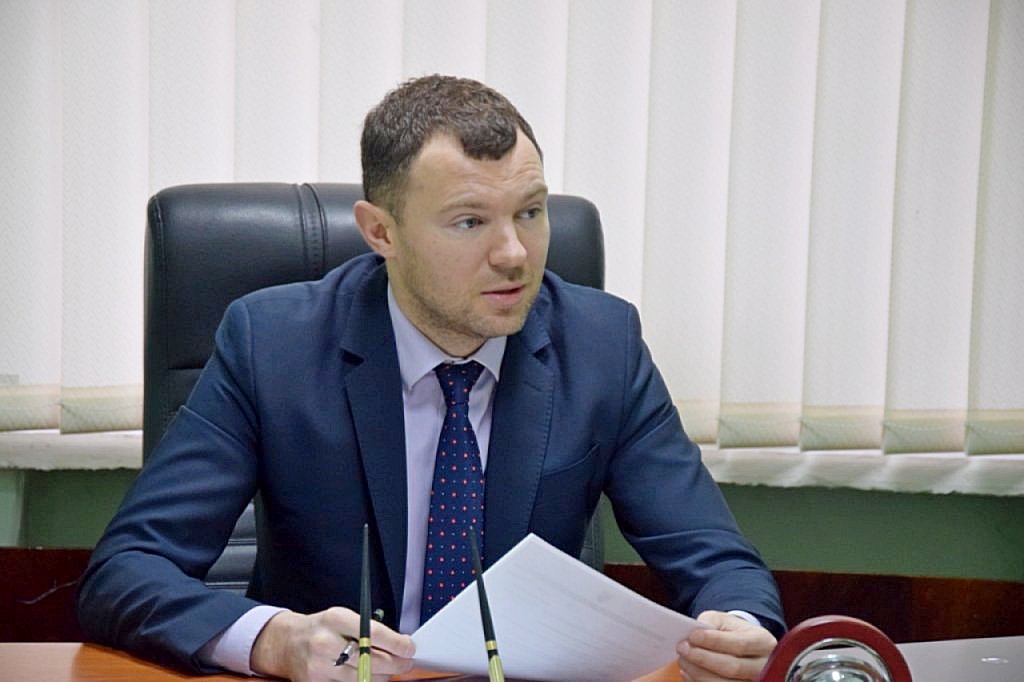
The conclusion of the industrial visa-free regime will be an important step on this path.
"The importance, uniqueness, and complexity of this agreement is evidenced by the fact that the European Union currently has a similar document with only one country. It is an industrially developed and technologically advanced Israel. And with 5-7 other countries, including the United States and Canada, the EU has agreed on other mechanisms to harmonize norms and standards for certain types of products. That is, this is not a broadly accepted and "easy" practice that is easy to implement. This means that signing a document like ACAA is important and prestigious. This facilitates and improves trade and economic relations and ultimately leads to the enrichment of both signatories to the document," Anna Lachykhina, Advisor to the Chair of the Committee on International Trade in the Canadian Parliament, partner of the Good Politics communication agency, added in a comment to Ukrinform.
THE WORK HAS BEEN GOING ON FOR ALMOST TWO DECADES: WHAT HAS BEEN DONE?
In general, negotiations on the signing of the EU ACAA Agreement with Ukraine have been going on since 2005. Initially, the document was scheduled to be finalized in 2011. However, for one reason or another (primarily related to political and economic force majeure), the date of its signing was repeatedly postponed. But even then, and even now, in the midst of a major war, the work on completing our country's "homework" did not stop.
During this time, we managed to bring thousands of national standards, technical regulations, metrology, accreditations, etc. into line with European norms. A number of important laws have been adopted: "On Metrology and Metrological Evaluation, On Standardization, On Technical Regulations and Conformity Assessment. And at the end of the last decade, the country finally approached the inspection stage, which is the basis for the decision to sign the agreement.
The previous assessment mission analyzed Kyiv's implementation of the following implementation measures: the state of adaptation of horizontal and sectoral legislation to EU legislation; standardization, metrology, accreditation, conformity assessment, market surveillance systems; machinery, electromagnetic compatibility of equipment and low-voltage electrical equipment.
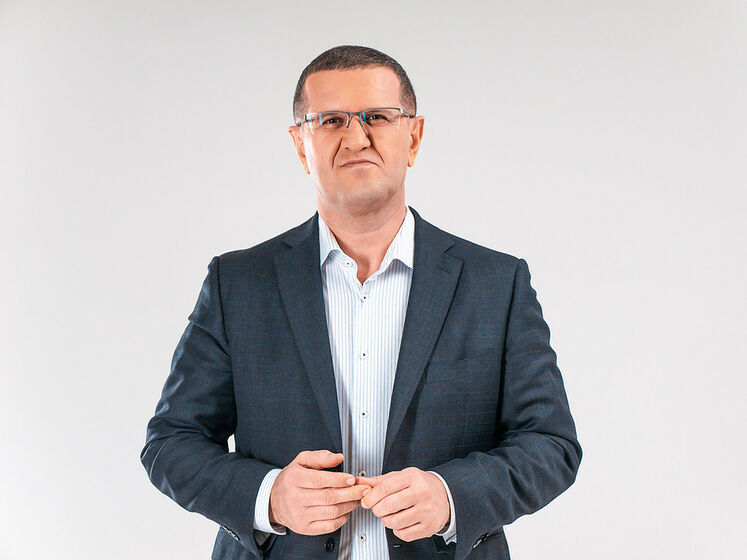
"In 2020-2023, the EU assessment mission continued its work on the readiness of Ukraine's quality infrastructure to conclude the ACAA Agreement. Based on the assessment results, the European side noted that Ukraine has made considerable progress in approximating the legislation on national quality infrastructure and legislation on industrial products to the basic provisions and norms of the European Union. However, mistakes have been identified that Ukraine needs to correct. The work is still ongoing, and although we are getting closer to its completion, the last stretch can be quite difficult," said Musa Magomedov.
In general, he concludes that industrial visa-free travel is much more difficult to obtain than other types of visa-free travel, such as the already mentioned transport, economic, or customs visa-free travel. The problem is not only in the legislation that needs to be brought in line with EU standards, but also in the need to create conformity assessment bodies and laboratories that meet the high EU criteria (which is difficult both financially and technologically).
"From the European side, all this will be controlled by assessment missions. Only after they are convinced that all the requirements are met, can we expect the approval of the 'visa-free regime'," reminds Magomedov.
...WHAT NEEDS TO BE DONE?
At the same time, Dmytro Kysylevsky assures that the conclusions of the European assessment mission do not refer to mistakes made by Ukraine in the process of implementing European rules and regulations, but to warnings related to regulations temporarily introduced for the period of martial law.
"In particular, the work of market surveillance authorities was limited. Accordingly, the European side says that the control function of market surveillance authorities should be restored at least for those goods that will be covered by the agreement at the first stage," Kysylevsky said.

In general, with the exception of some "nuances," including those already mentioned, the war, according to Oleksandr Bondarenko, managing partner of Bureau of Investment Programs, hardly slows down the process of granting Ukraine an industrial visa-free regime. Some delays are due to purely political factors, economic calculations, and depend on the position/fears of some countries due to the high competitiveness of Ukrainian products compared to those of Polish, Hungarian, and German manufacturers in specific industries, primarily in the agricultural sector.
"Each EU country is calculating potential economic losses due to the fact that there will be more Ukrainian goods on their markets. Spanish, German, and Polish producers of similar products will be able to sell less because of the competitive products of Ukrainian companies. For example, Germany is currently experiencing a recession. And it is not economically profitable for the country's economy to allow a strong player from Ukraine to enter the market. They will protect the interests of their own producers, so they may well block the granting of an industrial visa-free regime to Ukraine," the expert explains in a comment to Ukrinform.
The same applies to many other countries. After all, everywhere in Europe there are quite strong industrial lobbies - industry leaders, associations that protect the business interests of their members. According to Bondarenko, they are the ones who primarily block the decision to grant industrial visa-free travel to Ukraine through their governments. The situation with Polish farmers and the blocking of the borders with our country vividly illustrated how such a lobby works.
Also, according to the economist, Ukraine's obtaining of an industrial visa-free regime depends heavily on interstate trade agreements and, in general, on the level of trade relations between Ukraine and individual EU member states. It also depends on the export-import policy of a particular country and the European Union as a whole.

At the same time, we have to recognize that not all Ukrainian producers' products meet European standards and can be certified under EU rules. "Some producers need to reach a higher technological level of production and obtain new certification systems that have not yet reached Ukraine. But all this is done within 6-12 months, depending on the production and the active work of the manufacturer in this direction. Moreover, the legislative component of the certification issue is already 90+% harmonized with the European legislation," says Bondarenko.
At the same time, we know that many Ukrainian producers are already successfully operating in the European market. Their example will serve those who still need to "catch up."
"Ukrainian goods are already being supplied to the EU and are certified there. That is, they already meet the requirements there. But now our business spends additional time and money on deliveries. We expect that the ACCA agreement will speed up and reduce the cost of this process for the categories covered by the agreement. Successful progress will allow the Ministry of Economy to start consultations with the business on including other categories in the agreement in the future," Dmytro Kysylevsky is convinced.
...AND WHEN IS THE RESULT?
As for the prospects of signing the agreement itself on the already identified priority items, it is difficult to predict when this will happen. It depends on many factors. And Ukraine's desire is not the main one.
"Preparations for the ACAA agreement began after the economic part of the Association Agreement with the EU was signed. Basic laws and technical regulations based on EU legislation and European standards were adopted. The Ministry of Economy, which is the leader of the process on the Ukrainian side, plans to start negotiations on the agreement this year. The actual negotiations may last for months or years, depending on additional requirements from the EU," predicts Dmytro Kysylevsky.
At the same time, Anna Lachykhina draws attention to the difficulty of harmonizing the provisions of the technical part of the future agreement. After all, it involves a lot of nuances and details.
"Every provision relating to physical, chemical, consumer and other properties of a huge range of goods needs to be agreed by both parties. And there are many more such details than, for example, when considering political issues, such as harmonization of human rights legislation or even the adoption of a visa-free regime. Although this was also a difficult political decision at the time, the process was easier from a technical point of view. In addition, industrial goods are lines that are set up in a certain way, it is a process that is set up accordingly. If it differs from what is the standard in the European Union, it means that Ukrainian enterprises will also have to completely reconfigure their technological processes. And this also takes time," the expert says.
Nevertheless, no one doubts that Ukraine should go this way as soon as possible.
"After all, Ukraine's accession to the ACAA Agreement with the EU is another important step on our way to European integration, to a common European home and future. We have already made a lot of them in recent years, and we should not stop in any way. Free movement of goods and a single market with Europe is our ambitious goal, which cannot be achieved without an industrial visa-free regime. We hope that this year, as the Prime Minister emphasizes, we will be able to do this. This will determine how our enterprises and the national economy will develop, and therefore, our ability to protect our lands and build a better future for people," summarized MP Musa Magomedov.
Vladyslav Obukh, Kyiv

